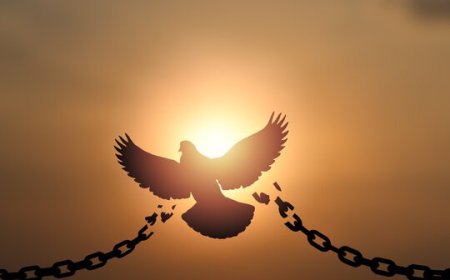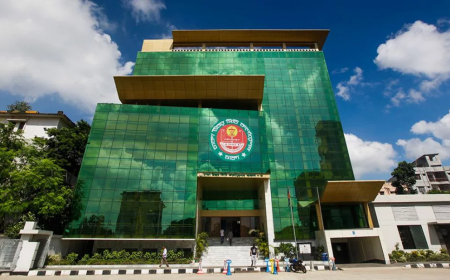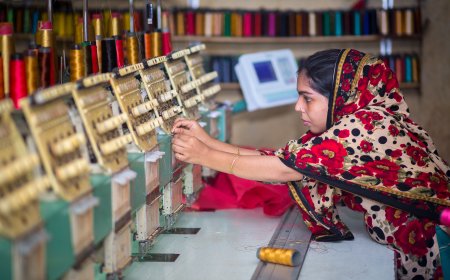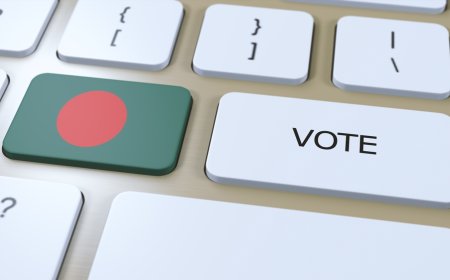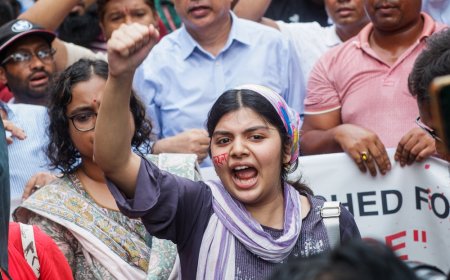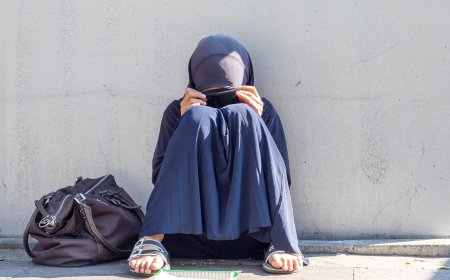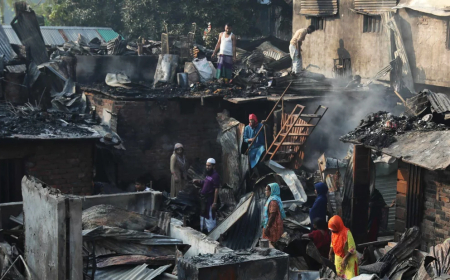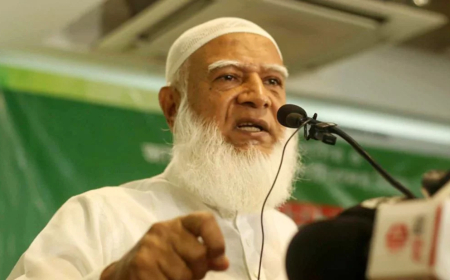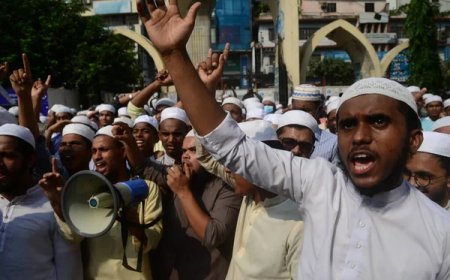Khaleda Zia and the Hardest Revolution of All
Not the overthrow of dictators, but the revolution of humility, compassion, and forgiveness. A lesson Bangladesh has never practiced, but one leader showed us how it is done.
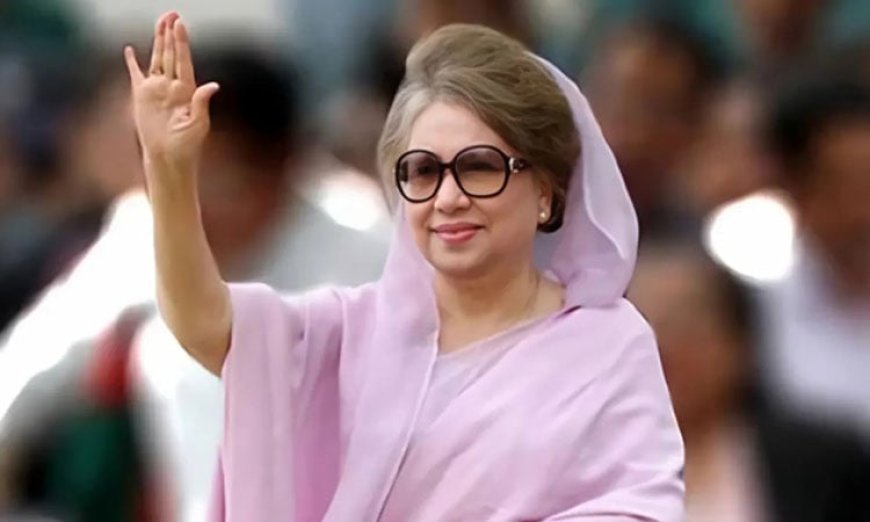
A Legacy of Sacrifice and Dreams Deferred
I never witnessed the sacrifice, dreams, and aspirations of 1947, 1952, or the bloody birth of Bangladesh in 1971, when the best of our freedom loving people laid down their lives for a just, equal, and democratic homeland. My generation inherited their legacy, but I first tasted the spirit of collective uprising during the 1990s, when students and citizens rose against General Ershad’s dictatorship and restored parliamentary democracy.
In 2024, I joined the student led anti-discrimination movement, along with hundreds of thousands of others who filled the streets with the same dream. We believed in a Bangladesh of equality, justice, and freedom for all, regardless of creed, religion, sexual orientation, or disability. Yet only a year later, that dream, and the dreams deferred from generations past, already feels endangered. We have the courage to rise at moments of crisis, but we lack the humility, compassion, and discipline to rise above selfishness, narrow party loyalty, and personal vendetta.
Cycles of Power and Betrayal
For over fifty years, from 1971 to 2024, Bangladesh has repeatedly failed to deliver on the promises of those who sacrificed their lives. Instead, our politics has been consumed by selfishness, jealousy, revenge, and the hunger for power.
Consider our most towering figures. Sheikh Mujibur Rahman was brutally assassinated with his family in 1975 and later symbolically humiliated when his statues were defiled. Ziaur Rahman, who declared Bangladesh’s independence, was murdered by fellow Bangladeshis, and his legacy is still attacked through distorted narratives. Dr Muhammad Yunus, revered worldwide as a Nobel laureate and champion of human dignity, is vilified at home with every possible insult.
In each case, the pattern is the same. A leader is glorified when convenient, then dragged down when expedient. This exposes our collective inability to respect differences and to build beyond vendetta politics.
The Awami League’s monopoly on the 1971 Liberation War narrative is a clear example. For seventeen years, Bangladesh was reduced to “Bongobondhu’s Bangladesh,” and by extension Sheikh Hasina ordained herself as the sole rightful bearer of power. Loyalty to her and her party mattered more than loyalty to the martyrs of 1971 or to Bangladesh itself.
Now, the same distortions are taking shape around 2024. All these different groups and parties are competing to own the “Student led anti discrimination movement.” The Awami League forgot this after 1971. Post August 2024, our new power brokers risk making the same mistake, consumed by claims of authority while neglecting their responsibility to the nation.
Fierce in Resistance, Passive in Building
We Bangladeshis are at our fiercest when resisting oppression, rigged election, or dictatorial regimes. Every milestone of our history, from 1947 to 1952 to 1971 to 1990 to 2024, was achieved through immense bloodshed, mass mobilization, and unimaginable trauma.
But where is that same passion in times of peace? Nation building requires lifelong dedication, compassion, and unwavering commitment to strengthening institutions. Reforming democracy, resisting the temptations of money and power, and building rule of law is harder than waging war or toppling dictators. Yet it is this slower, humbler work that determines whether we rise as a dignified nation among nations or remain stuck in cycles of destruction and rebirth.
Khaleda Zia: Resilience Without Bitterness
In this struggle, Begum Khaleda Zia’s example is both rare and essential. Her political life has been marked by immense sacrifice. She endured the assassination of her husband President Ziaur Rahman, years of imprisonment, denial of healthcare, and the personal losses of her son and her health. She was even unlawfully evicted from her home, a place filled with memories of her late husband and family. That cruel act of humiliation was not simply about property but about stripping dignity from a national leader.
Her life has also been weighed down with relentless accusations. Every institution available was weaponized to discredit her, from fabricated corruption charges to campaigns that attempted to tarnish her personal character. During her second term as Prime Minister, her coalition partner Jamaat-e-Islami sought to provoke political divisions by prescribing August 15, the day of Bongobondhu’s assassination, as her official birthday. It was a calculated attempt to undermine Sheikh Mujibur Rahman’s legacy with a day of celebration.
For years, this became a point of attack against her, with detractors branding her as insensitive and vindictive. But after the July Revolution of 2024, Khaleda Zia firmly refused to continue celebrating this Jamaat imposed vengeful birthday, choosing instead a position of restraint and reconciliation.
What stands out is her unyielding principle. Throughout her career, she has refused to compromise her core stance on democracy, sovereignty, and national interest. When pressured, she did not bargain away her beliefs for temporary political gain. Her stance has always been non-negotiable when it comes to the principle of allowing the people of Bangladesh to decide their future through free elections.
And through it all, she carried herself with dignity. Unlike many, she has never sought vengeance against those who harmed her. When Sheikh Hasina fled to India in 2024, Khaleda Zia did not strike back with bitterness. Instead, she displayed restraint and compassion, choosing healing over revenge.
Her conduct offers vital lessons for Bangladesh. She demonstrated dignity over victimhood by carrying herself as a leader, not a casualty. She showed compassion over revenge by refusing to dehumanize her fiercest rival. She practiced restraint in language by choosing words to heal rather than divide.
This stands in stark contrast to her predecessor Sheikh Hasina, remembered by many as “Killer Hasina” for presiding over years of extra-judicial killings, disappearances, and political persecution. Hasina embodied an old Bangladesh defined by vengeance, arrogance, and the silencing of dissent. Khaleda Zia, by contrast, showed that even after enduring seventeen years of trials and humiliation, leadership can be rooted in humility, compassion, and forgiveness.
For a nation addicted to cycles of hostility, Khaleda Zia’s resilience without bitterness is revolutionary in itself. Her life proves that leadership rooted in humility and principle, not vengeance, can serve as the true model for a new Bangladesh.
The Bangladesh Nationalist Party also deserves recognition. Under the leadership of acting chairman Tarique Zia, the party has endured years of persecution, suppression, and marginalization, yet it remains committed to carrying forward the vision of democratic, free, and fair elections as the foundation of national unity. That resilience, alongside Khaleda Zia’s example, represents a vital force for rebuilding the political future of Bangladesh.
The Hardest Revolution
As I reflect on the sacrifices of generations before us, I ask whether our future must always be chained to the rise and fall of individuals. Bongobondhu, the declarer of independence, and the Nobel laureate, all have been celebrated and then vilified. The July 2024 uprising is already being carved up by competing claimants.
If we are to honor the martyrs of 1947, 1952, 1971, 1990, and 2024, then we must break this cycle. All those martyrs died believing that those who survived would make their sacrifice and dream come true for their families and for the next generation. How many more revolutions and uprisings must we endure before we begin honoring and living the dream of their Bangladesh, and ending the cycle of dreams deferred?
Khaleda Zia’s life answers that question. Seventeen years of trials, persecution, and humiliation did not harden her into bitterness. Instead, she showed this nation for the first time what we have long lacked in our national psyche: humility, compassion, forgiveness, and restraint. In her refusal to indulge in revenge, she offers Bangladesh the model of principled leadership we desperately need.
The real challenge before us is not overthrowing dictators, but proving that we can govern ourselves with justice, humility, and unity. That is the hardest revolution of all, and only by embracing it can the sacrifices of the past fifty four years bear fruit. Only then will our future be worthy of the dreams that built this nation.
The time has come to end the cycle of dreams deferred and finally begin living the dream of our Bangladesh, the Bangladesh the martyrs envisioned.
What's Your Reaction?










